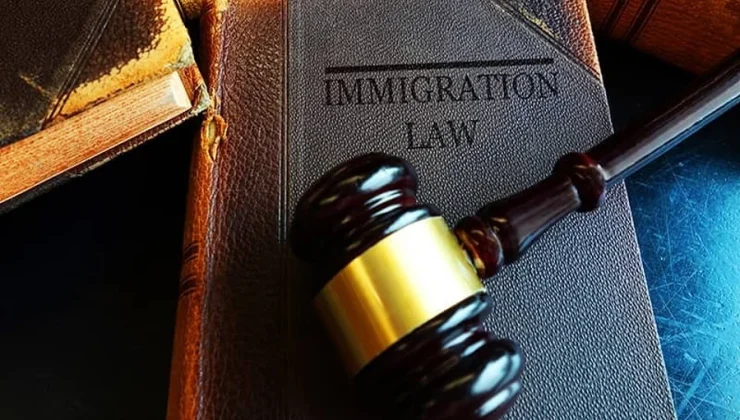What’s the I‑212 Approval Rate and How Can You Improve Your Chances?

Applying for an I‑212 waiver—also known as the Application for Permission to Reapply for Admission into the United States After Deportation or Removal—can feel like a complex and uncertain process. One of the most common questions is: what is the I‑212 approval rate? While there is no definitive number published by USCIS for every context, understanding what is known and the key factors that affect approvals can help applicants strengthen their case and improve their chances.
What We Know (and Don’t Know) About I‑212 Approval Rates
USCIS does not regularly publish a precise, nationwide approval rate for Form I‑212 broken down by all possible grounds of inadmissibility. Because many cases are handled at different service centers or consulates, and because circumstances vary so widely from case to case (grounds of removal, period since removal, criminal history, family ties, etc.), there is no one-size-fits-all percentage. (This lack of public data makes “approval rate” something of an estimate rather than a confirmed statistic.)
Some immigration‑focused sources suggest that the I‑212 waiver success rate tends to fall in the 60%‑75% range, depending heavily on the strength of the case. This is an approximate figure drawn from case studies, attorneys’ reports, and reviews of public guidance. But keep in mind: results can be much higher or lower depending on the factors in play.
Key Factors That Affect Your Chances
Your probability of approval of an I‑212 waiver depends on several important factors. Understanding these can help you build a stronger application.
Time Since Deportation or Removal
The more time that has passed since removal, the better. USCIS (and consular officers) look more favorably on individuals who have had time to rehabilitate, establish roots, or demonstrate changed circumstances.
The Reason for Removal
If the removal was for less serious immigration violations (for example, unlawful presence rather than criminal activities or fraud), that typically works in your favor. Criminal or fraudulent removals are more difficult to overcome, and often require more compelling evidence of rehabilitation.
Family or Other Ties in the U.S.
Having U.S. citizen or lawful permanent resident family members—especially immediate family—is a strong positive. When there is hardship to U.S. residents (or even to yourself) that can be clearly demonstrated, this can help.
Hardship & Equitable Factors
The waiver process is discretionary. It’s not just about meeting legal eligibility but also showing why, in equity, USCIS should grant your waiver. Factors like continuous U.S. residence prior to removal, good moral character, employment or community involvement, showing that someone depends on you, or that you would suffer extreme hardship if you cannot return, all matter.
Criminal History, Rehabilitation, & Good Moral Character
Even if criminal history exists, evidence of rehabilitation, positive contributions, and generally good moral behavior can help overcome negative aspects of the record. Not all criminal or inadmissible behaviors are equal under immigration law; some may be waivable, others not.
Quality of Documentation
Submitting well‑prepared, thorough documentation is essential. Missing information, poorly rendered evidence, lack of credible witnesses, or inconsistent statements tend to lead to delays or denials.
Where & How the Case Is Filed
Different consulates or USCIS service centers may have varying standards or workloads. Also, whether you use counsel, whether you file concurrently with other waivers (if needed), and how you present the case (legal briefs, affidavits, etc.) can make a difference.
Practical Steps to Improve Approval Odds
Given those factors, here are actionable steps to improve your chances:
- Collect evidence early: Gather documents proving your identity, the removal or deportation, any criminal records, family ties, hardship, and contributions or ties to the community.
- Demonstrate changed circumstances: If your life has changed—e.g. stronger family ties, improved livelihood, lawful presence before removal, or rehabilitation—it should be clearly documented.
- Use persuasive hardship arguments: Show what harms you or your family would face if you cannot reenter. Highlight emotional, financial, medical, educational, or social hardships.
- Work with an experienced immigration attorney: They can help you identify which discretionary factors are most relevant, ensure standards are met, check local consular or service center practices, and shape your argument accordingly.
- Make sure there’s no unwaivable bar: Some grounds of inadmissibility cannot be waived. If your situation involves aggravated felonies or certain criminal or fraud grounds, you’ll need to confirm whether an I‑212 can help (or whether the law requires a different remedy).
Why Percentages Can Be Misleading
While hearing numbers like “60‑75% approval rate” can give hopeful expectations, these percentages come with caveats:
- They often come from law firm case histories or smaller datasets, not from formal USCIS published data.
- Success rates might be inflated in reports because people whose cases are weak may not even apply or may drop out.
- Each case is unique; two applicants with similar “waivable” grounds may see very different results depending on documentation, evidence quality, and local adjudicative culture.
When to Consult the Law Office of Lina Baroudi
Given the complexity and the discretionary nature of I‑212 applications, having professional legal help can significantly improve not only the odds of success but avoid procedural delays, errors, or missteps. Firms like Law Office of Lina Baroudi specialize in immigration waivers including I‑212, and can assist with:
- evaluating your specific case to see whether an I‑212 waiver is viable,
- gathering and drafting compelling evidence and affidavits,
- preparing persuasive hardship and equity arguments,
- checking if any associated waivers or immigration applications must be submitted in tandem,
- helping you anticipate and address obstacles (for example, criminal records, prior immigration violations, etc.).
While there is no single, official percentage that guarantees success, the weight of case law and attorney experience suggests that many reasonably strong I‑212 waiver applications get approved—often in the 60‑75% range, depending on how well the applicant addresses the key factors. Strong documentation, clear hardship, evidence of rehabilitation, and good legal strategy significantly improve your odds.
If you or a loved one are considering applying for an I‑212 waiver, it’s wise to start preparing early, be meticulous with your documentation, and consider professional guidance. With the right preparation, you won’t just be asking what’s the I‑212 approval rate—you’ll be positioning your case to be among those approved.








